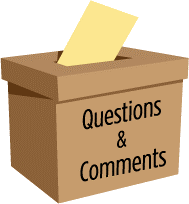Laboratory Emergency Preparedness
OverviewThe Laboratory Services Emergency Preparedness program is committed to continually improving laboratory preparedness and response and has improved our laboratories’ capacities to respond to biological and chemical threats.
Call the Montana Laboratory Services Bureau (MTLSB) at (800) 821-7284 for information regarding the following public health emergencies.
The APHL Laboratory Response Network Joint Leadership Committee revised and published the definition of sentinel clinical laboratories in 2018. The definition can be found on the American Society for Microbiology (ASM) website, which contains other Laboratory Response Network (LRN) information.
Please contact Kim Newman, (406) 444-3068, or by email, for the Montana Sentinel Clinical Laboratories Criteria for Certification checklist.
Specimens for Rapid Toxic Screens are collected in the event of suspected population exposure to chemical agents of terrorism. Information regarding this testing, as well as instructions for specimen collection, can be found at Collecting and Labeling Specimens from People with Possible Exposure to Chemical Agents | The Laboratory Response Network Partners in Preparedness | CDC
Specimens must be shipped to the MTLSB for forwarding to the CDC for screening. These samples are legal evidence and require a Chain of Custody form with their submission. Contact the MTLSB if you need a copy of a Chain of Custody form.
Drinking Water Emergency Sampling (DWES) Kits are used to collect water samples from a public drinking water facility during a suspected or credible contamination threat event. Each local and tribal health jurisdiction is responsible for maintaining the location of these kits and the associated point of contact information. For this information, contact the Preparedness Coordinator at your local health department.
These water samples are legal evidence and require a Chain of Custody form, which is included in the DWES Kit.
Chemical and Biological Agent Transport (CBAT) Kits provide a consistent mechanism for collecting and transporting suspicious unknown samples to the MTLSB. Instructions are included with each kit. Before submission, these samples must be pre-screened for biological, chemical, radiological, explosive, and flammable agents and require a Chain of Custody form included in the kit.
Each local and tribal health jurisdiction, regional HAZMAT team, and the 83rd Civil Support Team of the MT National Guard have been assigned CBAT Kits. For the location of these kits and the associated point of contact information, contact the Preparedness Coordinator at your local health department.
For samples not collected using the DWES or CBAT kits, contact the MTLSB at (800) 821-7284 for a Chain of Custody Form.
MTLSB Courier Information can be found at Courier Routes and Sample Delivery.


